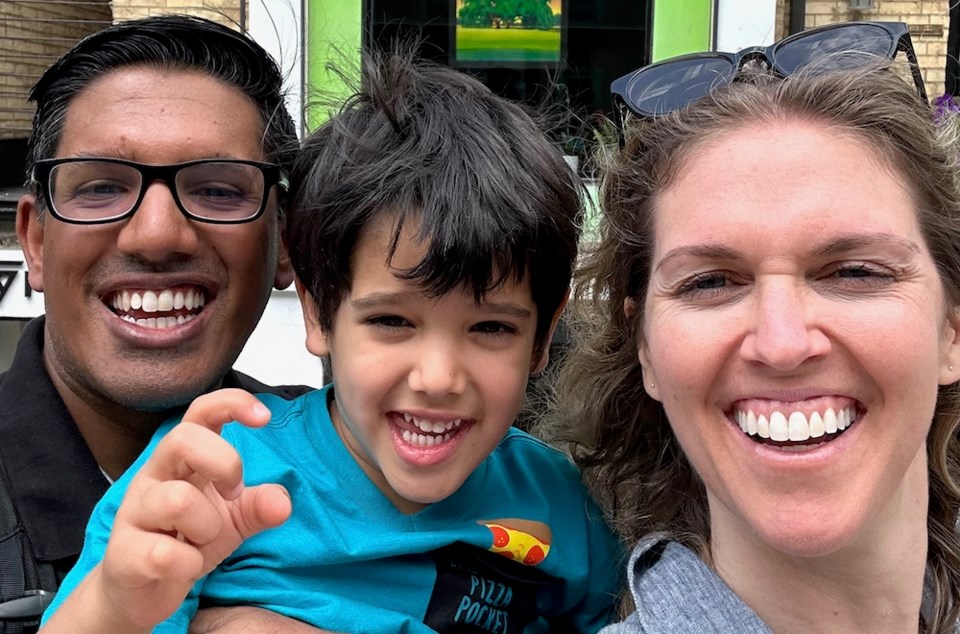A new publicly funded IVF program is set to start next year in B.C., as the province increases its health-care spending on cancer and home and long-term care.
B.C. Finance Minister Katrine Conroy said in the budget unveiling at the Victoria Conference Centre on Thursday that the province is investing $68 million over three years to help families have babies.
Starting April 1, 2025, B.C. will join other provinces, including Ontario, Manitoba and Quebec, in funding an initial IVF treatment — which typically costs about $15,000 to $20,000 per cycle — for those struggling with infertility or other challenges to having a child.
“It shouldn’t matter how much money you have, it shouldn’t matter who your partner is or who you love — if you want to have a child, you should be able to try,” said Conroy, who has four children and nine grandchildren.
Fertility coach Laura Spencer, who was born and raised in Lantzville, said she’s “ecstatic” about the announcement, which she said has been a long time coming. “Too many haven’t been able to afford it or were just able to scrape by or went into debt for IVF treatments.”
Spencer and partner Emanuel Nazareth spent $22,000 for two cycles of IVF to have son Ethan, who is now five, and said it’s not uncommon to need more than one cycle. She’s hoping the province includes the required medication that goes with IVF in the coverage.
Spencer said the program shouldn’t be hard to implement, with only four fertility companies in the province and blueprints from Ontario to work from.
Obstetrician and gynecologist Dr. James Graham, a reproductive endocrinologist in Victoria, called the IVF budget “fantastic news,” although BC United Finance critic Peter Milobar criticized the government for promising to fund IVF treatments only after the provincial election, set for the fall.
Kristan Ash of the Midwives Association of B.C. called the IVF funding a great opportunity, saying the true demand for the service will be revealed when the program rolls out, since the cost has been too high for many to even try.
Conroy said spending on health care in general will be bumped up by an extra $6 billion over three years, with $13 billion over the same period going to support the construction of long-term care, acute care and cancer-care facilities.
Another $270 million over three years has been added to the annual $90 million already allocated in the province’s 10-year cancer plan, announced last year.
The spending will go toward hiring staff, including needed oncologists and radiation therapists.
Last year, B.C. began sending eligible breast and cancer patients who were waiting longer than the benchmark 28 days for radiation treatment to one of two clinics in Bellingham, Washington, to clear the backlog.
Delivering better cancer care is a key focus of this year’s budget, said Conroy. Cancer-care centres are on the way for Surrey, Burnaby, Nanaimo and Kamloops. Capital funding for Nanaimo’s cancer centre was not in the 2024 budget, as it remains in the planning stage, but is expected to be announced in coming months.
The province also aims to expand specialized cancer services in areas such as malignant hematology, immunotherapy and pediatric oncology.
For seniors, home care, community care and long-term care are also getting a boost.
The province is providing $354 million over three years in home and community care, including $227 million for home health services to help keep mainly seniors living in their own homes, and $127 million for community-based seniors services.
Meena Brisard, secretary-business manager of the Hospital Employees’ Union, applauded the budget for its capital investments in not-for profit long-term-care facilities.
“One of the best things this government could do is invest in long-term care to make sure we take some pressure off the hospital system,” said Brisard. “And the money is going to go to direct patient care, not for profit, so we’re very excited about that announcement and also that they are investing in home support and community care for seniors, so seniors can have better care in their homes.”
Adriane Gear, president of the B.C. Nurses Union, was pleased with the investments in cancer care and seniors but had hoped to see more money for recruiting and retaining nurses. The province and union are negotiating nurse-patient ratios but have yet to implement that plan.
Simon Fraser University health and policy researcher Andrew Longhurst said the budget provides significant new dollars for health care as part of the government’s ongoing commitment to addressing wait times and access challenges in primary care, cancer care and hospitals.
“Moving forward, what will be important to evaluate is if these significant new investments are achieving what is intended,” he said.
A total of $215 million over three years has been budgeted to continue to fund mental-health and addictions services.
Of that, $117 million is earmarked to continue to fund more than 2,200 community mental-health and substance-use treatment beds at more than 3,000 health authority and community-care facilities. Another $49 million is for harm-reduction initiatives at 49 overdose prevention sites, including drug-checking and Naloxone kits, and $39 million is in part for mobile integrated crisis-response teams.
There is money for funding the expansion of Red Fish Healing Centre for Mental Health and Addiction currently at the old Riverview Hospital in Coquitlam but details won’t be fully known until the business plan is approved.
BC United leader Kevin Falcon has long said the NDP government needs to be expanding mental-health and addiction supports and spending more money on treatment and recovery, noting that efforts over more than six years have not yielded results, with the number of people dying from toxic-drug poisonings increasing last year.




